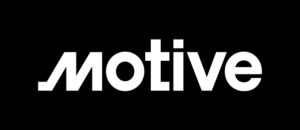Effective fleet management is crucial for enterprises looking to optimize their operations, reduce costs, and stay competitive. As technology advances, fleet management software solutions are becoming increasingly sophisticated, offering a wide range of features and capabilities to help businesses streamline their fleet operations.
In this article, we’ll explore the best enterprise fleet management software options on the market. This assessment takes into account factors like scalability, integrations, and the availability of advanced features like predictive maintenance and AI-powered safety tools.
Quicklook: 5 top enterprise fleet management platforms
- Best end to end fleet management solution: Trimble
- Best for driver management: Motive
- Best for customization: Verizon Connect
- Best for scalability: Samsara
- Best data security: Geotab
What is enterprise fleet management?
Enterprise fleet management is the process of overseeing, optimizing, and maintaining a large-scale fleet of vehicles within a company or organization. It involves leveraging advanced technologies, such as telematics, GPS tracking, and data analytics, to gain real-time insights into vehicle performance, driver behavior, and operational efficiency.
The goal of enterprise fleet management is to reduce costs, improve productivity, enhance safety, and ensure compliance with regulations. It should also streamline fleet operations across multiple locations and business units.
Effective enterprise fleet management requires a comprehensive approach that encompasses:
- Vehicle acquisition
- Maintenance
- Fuel management
- Driver management
- Data-driven decision-making
How does enterprise fleet management work?
It works by combining various processes, technologies, and strategies to efficiently manage and optimize a large fleet of vehicles.
The process typically involves the following key components:
- Data collection: Telematics devices and other sensors are installed in vehicles to gather real-time data on location, speed, fuel consumption, driver behavior, and vehicle health.
- Data analysis: The collected data is transmitted to a central platform, where it is analyzed using advanced analytics and machine learning algorithms to gain insights into fleet performance and identify areas for improvement.
- Fleet optimization: Based on the data insights, fleet managers make informed decisions to optimize routes, reduce fuel consumption, schedule preventive maintenance, and improve driver safety.
- Maintenance management: Enterprise fleet management includes proactive maintenance scheduling and tracking to minimize vehicle downtime, reduce repair costs, and extend vehicle lifespan.
- Driver management: Fleet managers monitor driver behavior, provide training and feedback, and implement policies to promote safe driving practices and reduce risk.
- Compliance management: The fleet management system helps ensure compliance with regulations related to vehicle inspections, hours of service, fuel tax reporting, and environmental standards.
- Integration with other systems: Enterprise fleet management solutions often integrate with other business systems, such as ERP, CRM, and transportation management systems, to streamline data flow and enable better decision-making.
- Continuous improvement: Fleet managers regularly review performance metrics, benchmark against industry standards, and adjust strategies to drive continuous improvement in fleet operations.
By leveraging advanced technologies and data-driven insights, enterprise fleet management enables organizations to optimize their fleet operations, reduce costs, improve efficiency, and enhance safety. The process is ongoing and requires close collaboration among fleet managers, drivers, maintenance teams, and other stakeholders to achieve the best results.
Best enterprise-level software for fleet management
Trimble

Trimble is a leading provider of fleet management software, offering tools to help fleet managers oversee all aspects of their business. Its wide range of features, including GPS tracking, fuel monitoring, maintenance scheduling, and driver behavior analysis, can be customized to meet the specific needs of your fleet. You’ll find solid, reliable technology backed by a responsive customer service team. Trimble’s solution is user-friendly and provides full ELD mandate compliance.
Best for: End to end fleet management
Special features
- Fuel price tracking
- System alerts
- Geofencing
- Robust telematics capabilities
Benefits
- Real-time asset tracking
- Reduce driver error with live tracking and feedback
- IFTA fuel tax data
- Driver vehicle inspection reports (DVIR)
- Fuel use analytics
- Engine status reports
Disadvantages
- Expensive upfront hardware costs
- Relatively complicated installation
Pricing: $1,200 upfront for hardware with plans starting at $43 per month
Motive

Motive has one of the best platforms for driver employee management, and is dedicated to helping the freight industry optimize safety, productivity and profitability. It integrates GPS with an electronic logbook so you know where your fleet is at all times. Use the power of AI to automate driver coaching and customize in-house safety scoring. Manage your fleet more efficiently and build better communication with drivers through Motive.
Best for: Driver management
Features
- AI-assisted, real-time safety warnings for drivers
- Automated driver coaching
- Virtual geofenced parameters aid in vehicle and cargo theft recovery
- Real-time GPS fleet tracking and location history records prevent unauthorized vehicle use
- Fuel monitoring
- Dashboard view for fleet tracking
Benefits
- Improved safety compliance
- Reduced fuel usage
- Safer roads
- Decreased coaching time for safety managers
- Improved risk management
Disadvantages: Issues with freezing apps or getting stuck in drive mode
Pricing: Free trial; contact Motive for details
Verizon Connect

Verizon Connect combines fleet tracking, ELD compliance, safety cameras, fuel cards, and other premium transportation capabilities in one customizable interface. Its software for fleet management offers a real-time, complete view of enterprise level daily fleet operations. With features aimed to help reduce costs, increase productivity and stay on top of vehicle maintenance, it can be a one-stop solution for large fleets. Verizon’s trucking logistics solutions include an easy-to-use app and integrations.
Best for: Customization
Special features
- Mobile app can be used for driver communication
- Maintenance notifications
- Diagnostic trouble code (DTC) alerts
- Syncs across multiple languages and time zones
- Custom access and security levels
- Works with custom workflow scripts
Benefits
- Alerts for inefficient or unsafe driving behaviors
- User friendly app
- Prefilled checklists for vehicle inspections
- Dashcam connection for added security
- Fuel consumption monitoring
Disadvantages: Lack of pricing transparency
Pricing: Contact Verizon for a customized quote
Samsara

Samsara is an IoT-enabled fleet management system that offers modular solutions for tracking, video-based safety, electronic logging, dispatching, and more. The company’s highly scalable platform is appropriate for trucking companies and commercial fleets of all sizes. Featuring an open API and app marketplace, Samsara’s user-friendly fleet technology is easily integrated with other business software.
Best for: Scalability
Features
- Fleet maintenance
- Route planning
- Fuel management
- Delivery scheduling and management
- Trailer tracking
- Dashcams
- Real-time vehicle diagnostics
- Compliance
Benefits
- Excellent value
- Strong functionality
- Great customer support
- Easy to use
Disadvantages
- Some users report bugs, but customer service is responsive
- When new updates are released, app may slow down for a few days
Pricing: Complete a company questionnaire and schedule a demo to learn more.
Geotab

Geotab provides a robust enterprise fleet vehicle management solution with features like GPS tracking, ELD compliance, predictive maintenance, and customizable reporting. It features a wide range of third-party integrations and has a strong focus on data security.
Best for: Data security
Special features
- Advanced telematics with real-time tracking
- Fuel usage monitoring
- Driver safety reporting
- Customizable add-ons like dashcams
Benefits
- Highly scalable and customizable
- Robust data analytics capabilities
- Strong compliance features, including ELD
Disadvantages
- Potential for data overload if not properly managed and analyzed
- Initial setup can be complex
Pricing: Varies based on features and size, starting around $20-$35 per month per vehicle
Traditional vs enterprise fleet management solutions
The main difference between a regular fleet management solution and an enterprise fleet management solution lies in the scale, complexity, and specific features designed to cater to larger organizations with more extensive fleet operations.
Traditional fleet management solutions
A regular fleet management solution:
- Is designed for small to medium-sized fleets
- Includes basic features like GPS tracking, fuel management, and maintenance scheduling
- Features simple reporting and analytics
- Offers limited integration with other business systems
- May be less customizable to specific business needs than enterprise platforms
Enterprise fleet management solutions
On the other hand, enterprise fleet management technology:
- Is designed for large, complex fleets with hundreds or thousands of vehicles
- Includes advanced features like predictive maintenance, AI-powered driver safety tools, and real-time optimization
- Features comprehensive reporting and analytics, with the ability to drill down into granular data
- Extensive integration capabilities with other enterprise systems like ERP, CRM, and TMS
- Is highly customizable to meet specific business requirements and workflows
- Offers more advanced security features and access controls to manage large numbers of users
- Provides dedicated support and account management for large enterprise clients
- May include additional services like strategic consulting, change and work order management, and ongoing optimization
Benefit from enterprise fleet technology tailored to your needs
Choosing the best enterprise fleet management system requires careful consideration of your organization’s specific needs, fleet size, and strategic goals.
By weighing the key features, integration capabilities, and customer support offered by leading providers like the ones on this list, you can find a solution to meet your specific needs. Investing in the right enterprise fleet management tool will help position your company for success in an increasingly competitive and technology-driven landscape.
FAQ
An example of fleet management is a logistics company using GPS tracking, fuel management, and preventive maintenance to optimize the performance and efficiency of its delivery trucks while ensuring compliance with safety regulations.
Fleet management software is a digital platform that helps organizations manage, monitor, and optimize their vehicle fleet by automating and centralizing various tasks, such as vehicle tracking, maintenance scheduling, fuel management, driver performance monitoring, and compliance reporting.
An enterprise fleet is a large-scale fleet of vehicles, typically consisting of hundreds or thousands of vehicles, operated by a company or organization to support its business operations, such as delivery, transportation, or field services.


